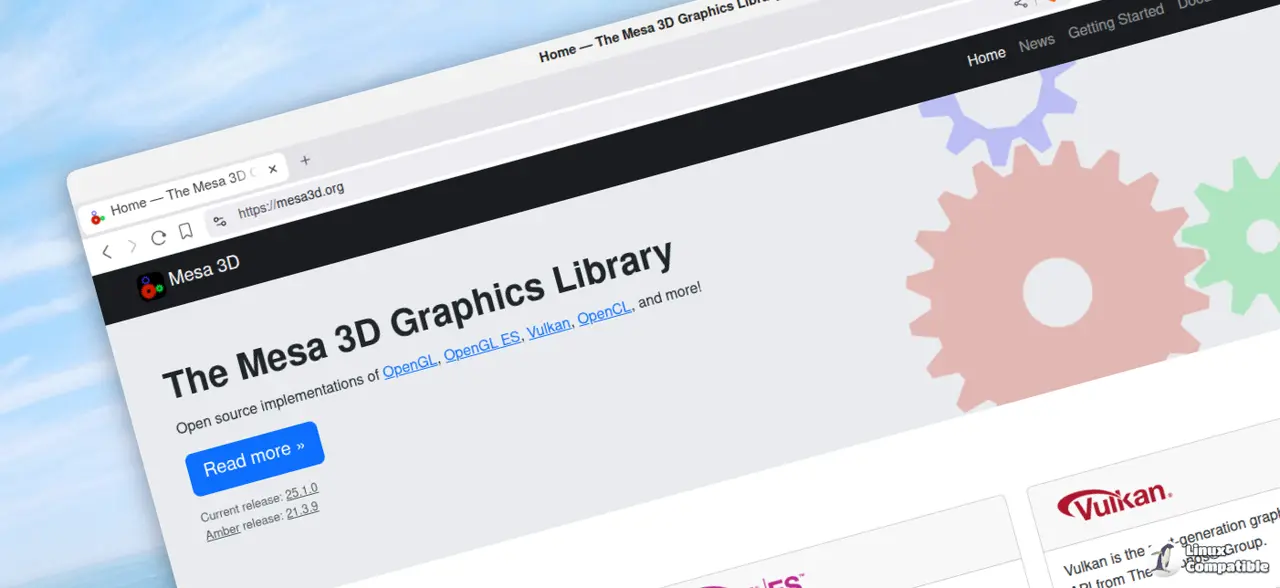The Mesa 25.1.4 release is a recent bugfix update that addresses various issues and enhances the performance of the Mesa graphics library. Key improvements include fixes for encoding multiple tiles with the newest VCN4 firmware, optimizations in SSBO offset shifts, and enhancements to pool allocation failure reporting. Additional improvements involve refining component trimming in texture visits, rectifying buffer clear operations, and resolving misleading false error messages.
The release is accompanied by acknowledgments of contributions from various developers, each correcting specific bugs or improving functionality across different components of the Mesa library. Some notable fixes include ensuring shader_clock support for newer versions, correcting issues with texture state counts, and improving compatibility with multi-planar formats.
Users are encouraged to report any issues they encounter through a designated link. The next bugfix release is anticipated in two weeks, set for July 2nd.
For developers and users interested in the technical details, the full list of changes includes contributions from various individuals addressing a range of components, such as Panfrost, ANV, RADV, and more. Each change is aimed at enhancing stability and performance, reflecting ongoing efforts within the Mesa community to improve the driver’s functionality.
To access the new release, users can download it from the Mesa archive, where the SHA256 and SHA512 checksums are provided for verification.
In extending this information, it’s worth noting that Mesa continues to play a crucial role in providing open-source graphics drivers for Linux-based systems. The ongoing development and regular updates demonstrate the commitment of the community to maintain compatibility with the latest hardware and software advancements, ensuring that users and developers have access to reliable graphics performance. As the software evolves, it is essential for users to stay updated with the latest releases to take advantage of bug fixes and new features that enhance their graphics experience
The release is accompanied by acknowledgments of contributions from various developers, each correcting specific bugs or improving functionality across different components of the Mesa library. Some notable fixes include ensuring shader_clock support for newer versions, correcting issues with texture state counts, and improving compatibility with multi-planar formats.
Users are encouraged to report any issues they encounter through a designated link. The next bugfix release is anticipated in two weeks, set for July 2nd.
For developers and users interested in the technical details, the full list of changes includes contributions from various individuals addressing a range of components, such as Panfrost, ANV, RADV, and more. Each change is aimed at enhancing stability and performance, reflecting ongoing efforts within the Mesa community to improve the driver’s functionality.
To access the new release, users can download it from the Mesa archive, where the SHA256 and SHA512 checksums are provided for verification.
In extending this information, it’s worth noting that Mesa continues to play a crucial role in providing open-source graphics drivers for Linux-based systems. The ongoing development and regular updates demonstrate the commitment of the community to maintain compatibility with the latest hardware and software advancements, ensuring that users and developers have access to reliable graphics performance. As the software evolves, it is essential for users to stay updated with the latest releases to take advantage of bug fixes and new features that enhance their graphics experience
Mesa 25.1.4 released
The most recent bugfix release for Mesa 25.1.4 is now available, addressing several issues. The release addresses several issues, including the encoding of multiple tiles with the latest VCN4 firmware, optimization of SSBO offset shifts for nir_opt_offsets, and improvements to pool allocation failure reporting. Additional enhancements involve refining component trimming in visit_tex, rectifying buffer clears, and resolving misleading false errors.


